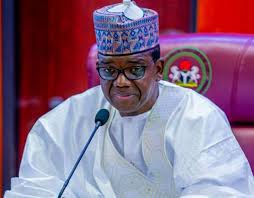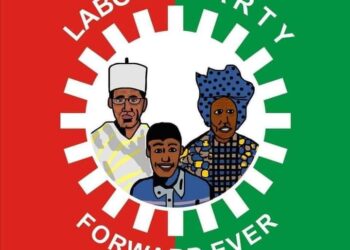The Senate has evaluated President Muhammadu Buhari’s one year in office. EZREL TABIOWO and TAIYE ODEWALE report the session.
Governance
The one-year performance of President Muhammadu Buhari’s administration was last week subject to extensive critique on the floor of the Senate.
The areas of critique by the upper chamber focused on federal government’s approach to governance over the last one year, the worrisome re-emergence of several deadly militant groups in the Niger Delta, looming threat of full-blown economic recession, and heightening spate of unemployment in the country.
In their separate assessments, Senators who took turns to speak on the just concluded legislative year of the Senate lamented the state of the Nigerian economy under Buhari, and urged the President to consider adopting an all-inclusive style of governance that engages the input of experienced persons without recourse to political affiliation.
Making the call on President Buhari in a speech delivered on the floor during Thursday’s plenary, the Senate President Bukola Saraki, urged the President to inject new blood into his administration for better performance.
He said such a government is needed at this critical time in view of the daunting challenges on ground and warned that the senate would soon call to question, all non performing appointees in the federal cabinet within the last one year.
He also charged the Federal government under the leadership of the President to use very judiciously the N500billion appropriated for social protection programmes in the 2016 budget by ensuring that those genuinely in need of such interventions, benefitted and not the other way round.
His words: “These are serious challenges that require all hands to be on deck. There is no other time in our history than now when the business of government needs to be conducted with great inclusiveness. We must find a way to bring the best brains in our country on board wherever they may be found.
“Even those who did not vote for us but believe in the change that we all believe is necessary to move our country forward should be given a seat at the table. If we are able to mobilise the best human resources that God has bountifully blessed our country with, I have no doubt that with God on our side, we shall overcome.
“We note the Federal Government’s plan to invest 500 billion in social protection programs in the current budget. We want to urge the government to ensure that appropriate mechanism is devised which would ensure that the benefits of these programs get to those who are genuinely in need.
“We are confident that one year after, the President must by now have better clarity on the capacity of his appointees. The Senate would not hesitate to hold any appointee accountable for the work he has accepted to do. We would like to seek Mr. President’s support and co-operation to enable us discharge this oversight task”.
Militancy in Niger Delta
Clearly sensing the imminent dangers and threat which a face-off between the military and the Niger Delta militants poses to the unity of the nation, Saraki in the speech, re-echoed the position of the British High Commissioner to Nigeria, Paul Arkwright, who calllled on the Federal Government to adopt dialogue approach rather than military force to tackle militancy in the Niger Delta region.
Saraki on his path, advised both the federal government and the Niger Delta Militants to embrace dialogue as the surest way of finding solutions to security challenges in the area.
“I cannot end this address without a note on the on going security challenges we are beginning to witness in the Niger Delta area of our country. We urge the warring militants to embrace our democratic institutions and channel their grievances through appropriate quarters as we can ill afford further damage to the ecosystem of this all important region and any more disruptions in the system.
“In the same vein, we also encourage government to adopt dialogue and engagement as a more lasting option towards resolving this challenge. We also call on the leaders in the area to play their part and ensure through mediation that this menace is comprehensively quelled”, he said.
Averting economic recession
Like Saraki, many of the Senators in their contribution to the generate debate on the first legislative year of the 8th Senate and by extension, one year anniversary of Buhari’s administration, also lampooned the government over his handling of the economy.
Specifically, Senator Ben Bruce PDP Bayelsa East), took a very critical look at at government’s approach towards redeeming Nigerians from the current economic shackles, declared that national budgets over the years had been made to give undue priority to recurrent expenditure serving only 2.2 million people out of the estimated population of 170million Nigerians.
He said: “We celebrate one year in office but I am very troubled by our economy. A lot of things have gone wrong and we have no time to fix the problems. Everybody complains that the price of oil has caused the decline of economy. But everybody must understand that the oil sector contributes fifty per cent to the GDP. The GDP cannot all of a sudden have a negative growth of minus .36 per cent. And if we have this again this quarter, we go into a recession.
“We have a very serious problem coupled with the fact that 18,000 babies are born in Nigeria everyday more than the whole of Western Europe combined and population growth with the declining economic growth is a terrible combination to have.
This is coupled with the fact that after one year the budget has not been implemented as Kemi Adeosun as the minister of finance has said. it is very unlikely the budget would be implemented fully this year because we have only 6 months to go.
“As a country of 170 million people with civil servants; the Civil servants in Nigeria are only 2.2 million, if 2.2 million people consume 75 per cent of our entire budget then we have a serious problem. What is going to happen is that Nigeria can never develop. That is the fact of life. If we want Nigeria to develop, recurrent expenditure can and should never exceed 50 per cent as a starting point regardless of the consequences.
“We cannot survive as a nation if all we do is pay salaries for 56 years. It is a very serious problem and here is a subject nobody talks about, population explosion 18, 000 babies born every single day and these are excluding babies born from rape victims. This is a serious problem”
Chief Whip of the Senate, Senator Olusola Adeyeye (APC Osun Central) was also frank in drawing the attention of his colleagues to the series of problems bedevilling the nation in addition to the challenge of imminent economic recession.
Adeyeye said: “No matter the political party we belong to, the country is in a turmoil. The economy is in a bad shape. Insecurity is very high. Unemployment is unimaginable. The next one year must not be like the last one year. We must make a difference.”
He urged his colleagues to put the past behind and proffer solutions to the myriads of problems bedeviling the country.
He said: “Some things have not gone on rightly in the last one year. If we say we have no sin, we lie and the truth is not in us. We need to tell ourselves the truth. We need to put our pasts behind us and work together.”
Tackling unemployment
Meanwhile, the Senate in its bid to intervene in the increasing spate of unemployment due to job losses in the banking sector had last week Wednesday summoned the Minister of Labour and Employment, Chris Ngige, Governor of the Central Bank of Nigeria, Godwin Emefiele and other Bank Chiefs over imminent retrenchment by major banks in the country recently.
The upper chamber had summoned Ngige to explain to it reason behind the threat given to Banks on possible withdrawal of operational license if planned mass sack of their workers is not halted.
This was sequel to a point of order raised to that effect by the Chairman, Senate Committee on Banking, Insurance and other Financial Institutions, Senator Rafiu Ibrahim (APC Kwara South).
Senator Ibrahim in the point of order, informed the Senate that the minister of labour made a statement on Tuesday in Geneva threatening banks to stop retrenchment of their staff because they are not the only ones suffering the economic downturn in the country which however sounded misguided to the Senator.
“Banking being a very sensitive industry, any misguided statement can have a throwback on the industry; it can create a run on the banks.
“As the chairman of the senate committee on banking and finance, we want to invite the minister, the central bank and the banks to know if they are talking about retrenchment and what will happen.
We want to know the basis of the directive and the basis of the threat”, he said.
Accordingly, the Senate President, Bukola Saraki who did not throw the matter to the floor for open debate since Senator Ibrahim came under order 43 which deals with personal explanation, directed the committee to summon the Labour Minister, CBN Governor and other bank executives over the looming crisis.
He said: “Senator Rafiu Ibrahim brought this matter to me and he has come under personal explanation of which there would be no further debate.
“They will come and meet before your committee at anytime decided by the committee”.
In view of the Senate’s critique of the Buhari-led administration, and it’s subsequent intervention in mass retrenchment by banks, it is anticipated that the suggestions by the upper chamber, if adopted by the federal government, may nip in the bud the activities of militants in the Niger Delta, reduce poverty drastically and reposition the state of the Nigerian economy going forward.



